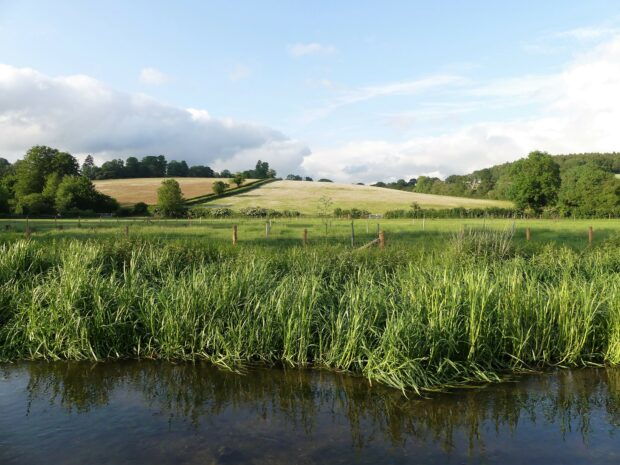
The Government has brought forward changes to the Levelling Up and Regeneration Bill (LURB) to help better protect England's chalk streams. The proposed amendments would add chalk streams into the definitions of ‘environmental protection’ and ‘natural environment’ in the Bill, meaning that the Government must consider chalk streams when setting the outcomes which will form the framework of environmental assessments in the future.
The amendment will enable us to ensure that Environmental Outcome Reports suitably reflect our chalk stream interest when they are developed with the Department for Levelling Up, Housing and Communities. It will ensure that chalk streams are specifically named in the bill, recognising the value of these distinctive habitats.
England is home to 85% of all chalk streams and restoring these internationally important habitats is a government priority. We reaffirmed this commitment in our Plan for Water, which recognises chalk streams as having special natural heritage. Furthermore, we are defining chalk streams as priority sites in our Storm Overflows Discharge Reduction Plan with a target of 75% reduction in harmful spills into these rivers by 2035.
Today’s amendment feeds into the government’s commitment to better protect England’s waterways through stronger regulation, as set out in our Plan for Water, and builds on the work already done to support chalk streams. This includes supporting the Chalk Streams Restoration Group; beginning a national programme of flagship chalk catchment restorations launched by water companies and driven by local communities; and investment of more than £5 million by the Environment Agency to support 53 chalk stream restoration partnership projects nationwide.
Water Minister Rebecca Pow said:
Chalk streams are both incredibly rare and a hugely important part of our environment. Today’s amendment adds to actions already taken by the government to protect them, including ensuring funding is invested in projects to help restore them - as set out in our Plan for Water.
They are iconic habitats, home to specific wildlife, and the UK is home to approximately 95% of the world’s chalk streams - so it is beholden upon us to look after them and we are demonstrating that we have committed to doing just that.
6 comments
Comment by Crispin Southgate posted on
Please address these concerns urgently
Comment by Liz Butcher posted on
2035! Far too late. Need to act NOW.
Comment by John W. Baxter posted on
What a shame that such a high percentage of chalk streams are located in the U.K., once proud of the fact that we had so many healthy rivers, before all those who previously were the gamekeepers turned into poachers and despoiled the pristine rivers that were used to dilute the not so pristine ones.
The one local to me, Costa Beck has fallen victim to YWS abuse , and now reflects how negligent and unpunished the water companies, stuffed to the gun whales with ex DofE, Ofwat and other toothless poodle organisations…..a national disgrace!…what a boast!.
Comment by Tom Davis posted on
You should NEVER use the term 'waterway' when referring to a river, as you have in this text. The term 'waterway' suggests the ability to pass along it as in 'highway', which in the case of many rivers and certainly most of our chalk streams is absolutely not the case: neither practically nor legally.
Comment by William Hughes-Games posted on
Not a word in this article that I can find on the roll of Beavers in restoring and maintaining the ecological health of chalk streams.
Comment by Peter Hunt posted on
I have lost all trust in this here today and gone tomorrow government to achieve its aims. So many promises are targets, recommendations or plans which will be rescinded or delayed.
Without laws, there can be no offence and without an offence, there can be no enforcement, no regulation.